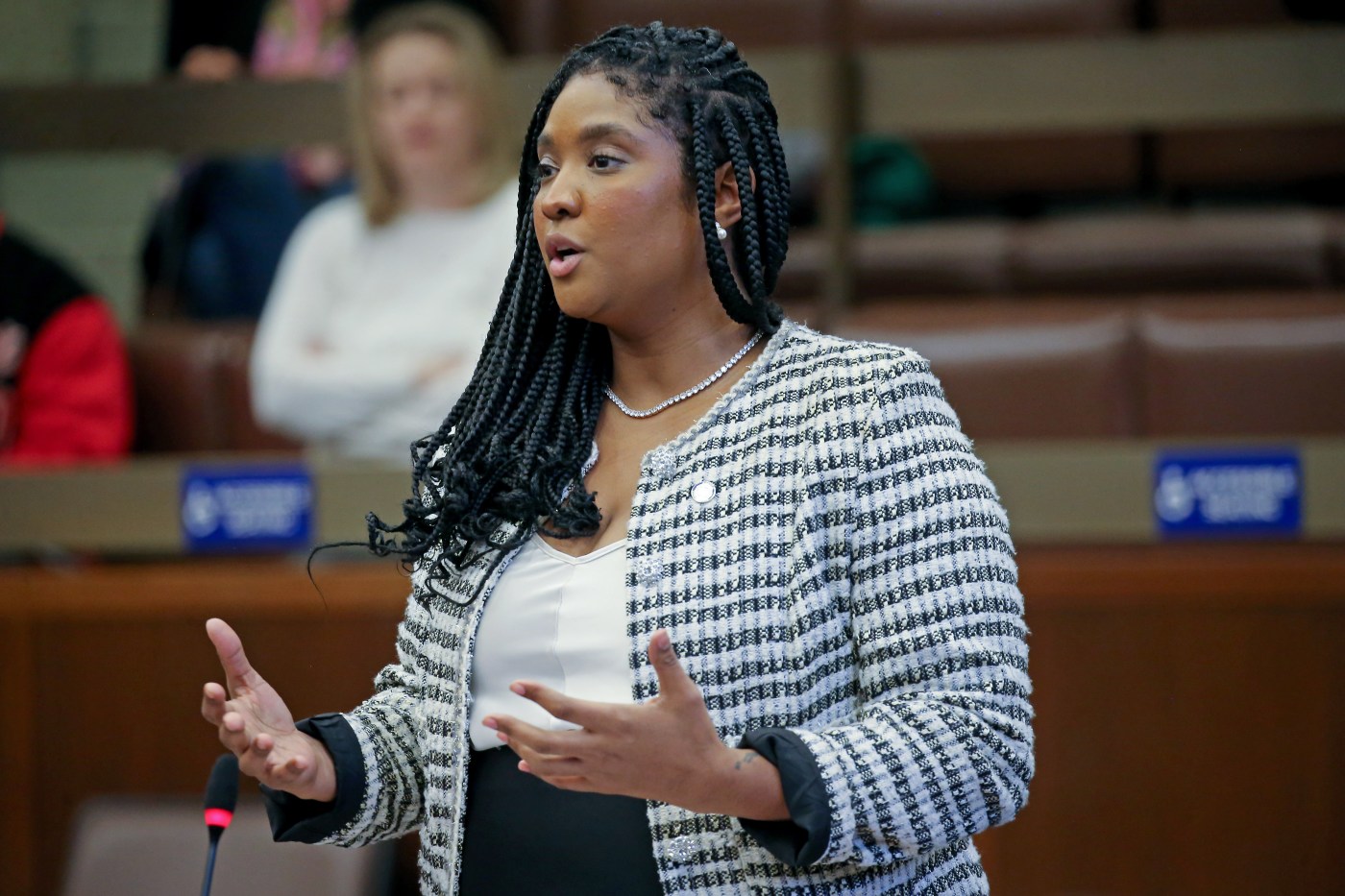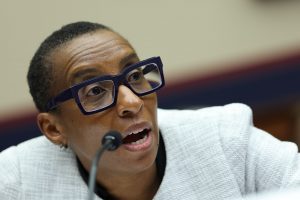
Boston City Council approves voting rights for immigrants with ‘legal status’
The Boston City Council approved a home rule petition that grants immigrants with “legal status” the ability to vote in local elections, over concerns that the move could jeopardize their path to attaining full citizenship.
The 8-4 vote taken Wednesday was described as a largely “symbolic gesture” by Councilor Gabriela Coletta who stated that conversations with her constituents drove her to vote ‘yes’ on the measure, despite the serious legal ramifications that could arise from non-citizens mistakenly voting in state or federal elections.
“After checking with members of my community, to them a ‘yes’ vote would show solidarity with those who are here legally, pay taxes and are members of, not just East Boston, but Boston as a whole,” said Coletta, who represents East Boston. “I do intend to vote ‘yes’ for them and for them only.”
Coletta, in a lengthy prepared statement read prior to the vote, directed the councilors to “be real” about what their ‘yes’ vote meant.
The mayor “may or may not” sign the home rule petition that passed through the Council, following a list of legal concerns cited by the city’s Election Department in prior Council hearings, she said, and, if the measure is sent to Beacon Hill, it could be one of the majority of city petitions that die in the state Legislature.
The measure could also be subject to legal challenges, Coletta said.
“The population in which we are trying to enfranchise deserves a tangible pathway,” Coletta said. “This docket is a starting point. However, due to the obstacles ahead, passage today serves simply as a symbolic gesture.”
Coletta joined seven other councilors from the progressive wing of the body — Ricardo Arroyo, Liz Breadon, Sharon Durkan, Kendra Lara, Ruthzee Louijeune, Julia Mejia and Brian Worrell — in voting to extend voting rights to non-citizens.
The four conservative-leaning councilors, Frank Baker, Michael Flaherty, Ed Flynn and Erin Murphy, voted in opposition.
Related Articles
Boston City Council approves ‘historic’ $82 million police contract
Boston City Hall roiled by email party invitation for ‘electeds of color’ sent to all
Boston City Council weighing vote on police contract
Lame duck Boston city councilor skips work in support of Palestinian-led ‘global strike’
Roslindale parking policies in play
The home rule petition was put forward by outgoing Councilor Lara, who teared up while speaking about how her father canvassed aggressively for her when she ran for City Council two years ago, perhaps helping to get her elected, but was unable to cast a ballot for his daughter due to his immigration status.
“His story is the story of thousands of legal residents in the city of Boston, who work, pay taxes, raise their children and participate in every way in strengthening the fabric of our city, yet cannot cast their ballot for the representatives who are making decisions about their daily lives,” Lara said.
Her proposal, she said, “can help get us closer to ensuring that we the people, means all of the people.”
According to the approved home rule petition, which the mayor’s office said it will be reviewing, immigrants with “legal status” constitute more than 28% of the city population, pay on average $2.3 billion in taxes annually, and hold roughly $6 billion in “collective spending power.”
The petition points to similar action taken by 15 other municipalities across the country as of January 2022, with voting rights restored to non-citizens in 11 cities in Maryland, two in Vermont, San Francisco and New York City.
When the measure was first introduced by Lara last month, Flaherty pointed to a non-citizen voting law that was passed by the New York City Council but struck down last year by a State Supreme Court. That decision held that “only U.S. citizens have the privilege of voting.”
On Wednesday, he reiterated the legal concerns that could arise from non-citizen voting, including ones mentioned by the city’s Election Department “around classification,” and the “unintended consequences” that could arise from extending voting rights to immigrants without full citizenship.
“Those unintended consequences are that they may mistakenly register to vote and/or vote in federal or state elections, which would seriously jeopardize their opportunity to become a legal citizen,” Flaherty said.
“I don’t know of anything more devastating than that,” he said, later adding, “And for me, that’s just too great a risk to take at this point.”


